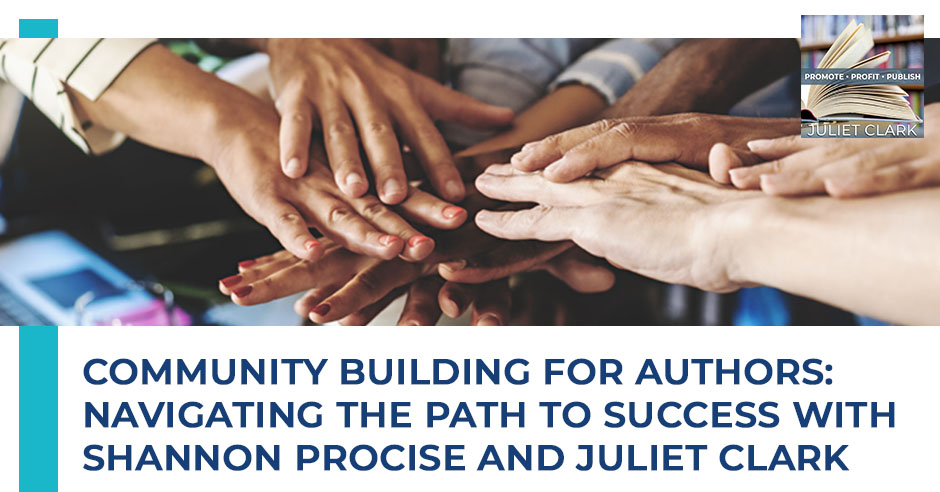
Join us in this exciting episode where we delve into the transformative power of community and platform building. Shannon Procise and Juliet Clark join Jared Rosen to explore strategies to foster connections and create raving fans. Discover how to leverage media assets, tackle the noise of the digital age, and build a supportive network that amplifies your impact. Plus, get an update on our soon-to-launch app, designed to enhance your author journey and engagement. Whether you’re an author, entrepreneur, or visionary, this episode is packed with valuable nuggets to elevate your community-building efforts. Don’t miss this opportunity to unlock the power of community and collaboration to accelerate your author success!
—
Watch the episode here
Listen to the podcast here
Community Building For Authors: Navigating The Path To Success With Shannon Procise And Juliet Clark
What we are going to see in this episode is training done with Jared Rosen’s DreamSculpt and Shannon Procise’s Media Magic. We’re going to talk about a lot of things, community and platform building. There are several people who are on the call. You might pick up some nuggets here and there that you didn’t know before.
—
This particular mastermind is focused on building community, which is essential for everybody. That’s writing a book or launching a book. We have a special guest. Before I introduce the guests, I want to give you an update for those of you who are familiar with what we’re doing with the app. It’s close to launch. When I’m saying launch, it’s a beta launch. What that means is that we are going to share it with friends and family, and there’ll be a place for feedback. We understand people’s user experiences.
It’s only going to launch as a beta in the Apple store, and then we’ll get it to the Android once we’re ready for the official launch. We’re certainly going to get the word out. If anyone has any questions, or if you haven’t, you’re not involved in this and it sounds interesting, shoot me an email. We are taking on some of the books that are not out yet but will be forthcoming. You’d still have all the media assets needed that we’re using for the DreamSculpt, Author Experience.
I’ll be introducing our guest. Our first guest is Juliet Clark, who’s more than a guest. She’s our marketing partner. We’ve been working together for now. It’s been a couple of years. There’s so much great value from our relationship and working with the DreamSculpt authors. We always appreciate when we have these masterminds and Juliet is able to be involved.
We have a very special guest. She’s somebody who works directly with Juliet’s company and has worked with quite a few of our clients with phenomenal results. Shannon Procise is a go-to guide for visionaries seeking to create community and cultivate raving fans. She’s a Founder of the Business Acceleration Network, which is a trail-basing community for heart-centered business owners who are here to make an impact. Shannon, I’m completely aligned with you because that’s exactly why I’m here too.
That’s what’s wonderful about working with all of you and developing your book. Each book that’s out there, no matter if it touches 10,000 people or 10, helps change lives and inspires those of you who are ready for inspiration. Let’s get it started. Juliet, it’s good to have you here. Shannon, what a treat to have you on this. I know that you’re going to be focusing on how to build a community. What I’d love to do is let’s start a little bit of a dialogue, and then I know, Shannon, you have a presentation for us. That would be valuable. Let’s start. Juliet, tell us a little bit about our whole network, and how Shannon works with your firm so people get a bigger picture of who everyone is.
A lot of the authors that I work with go over to the Trailblazers Network to start networking and finding people who will help promote. Shannon and I are big on power partnership, which is relationship capital, and how to leverage it to sell more books. She does our press releases, which we have some of the best press releases in the business because we do embedded videos, and regular videos, depending on what level you want. If you know anything, if you’re someone out there pitching corporate clients, corporate CEOs do not read press releases, they pull them up and go straight for that video.
It is very advantageous for you to have something like that. Most PR firms guarantee 150 pickups. Shannon guarantees 400, and we usually get closer to 600. She does a good job of getting those press releases out there, and she has a great community. I think that healers are probably the ones who benefit the most from the promotion because she’s got a lot of healers in her network. If you have a book on healing, you might want to think about joining her Trailblazers.
We’re all aligned to the same higher vision and mission. That’s what’s great about working with those of you that also share that. Shannon, I know you have a presentation you can share on a PowerPoint.
I can skip the presentation if you want to ask questions in that.
Breaking Through The Noise
I’m cool with that. The biggest question that people have is how to break through all of the noise out there. That’s one question, also people are a little perplexed about what the media is. I know back in the days when I had a first traditionally published book and we had a publicist and they did radio tours. We got a little TV, but mostly radio tours, and you had to send a hard copy of the book before they would even look at it and such. Maybe share the landscape now for the authors who get outreach and get it media pickups. Where are we now?
There’s a lot of noise. You nailed it right there on the head that between everything that’s happening in the news, the media, and the different media outlets, to be able to stand out, it’s about the story. It’s what you’re sharing, the impact that you’re making, and the common question that people say, or the myth that people say is, “You have to either have a nonprofit or you have to have this extraordinary story that’s going to get picked up.” The story is important, but when we work with authors, there are so many stories. You give me anybody, and I can find 50 different things to write about, whether it is educational or the launch of a book.
I know Juliet, we had somebody recently who was a part of our community, and using the community to help spread the word too was powerful. We have been successful at getting people in Business Insider, Fox, ABC, AsiaOne, and some of the global networks. What we do is we get to the news right up front. We have that catchy headline. That’s important. They want to know what’s there. If there’s a way to tap into the news or tap into something that’s going on in the world, we want to do that. People who are into health and wellness will find those buzzwords or keywords to position themselves. Also leveraging any other media that you’ve got in the past.
What I love about the bestseller campaigns is we’re able to put bestseller right in the headline. Those are things that we’ll do to make the author and, the book stand out, and get noticed. The video is essential. A lot of people don’t take the time to read. To be able to see and hear you and connect with you is important. We love having the option to be able to embed a bit of video and send it directly to your YouTube community and what you’re doing.
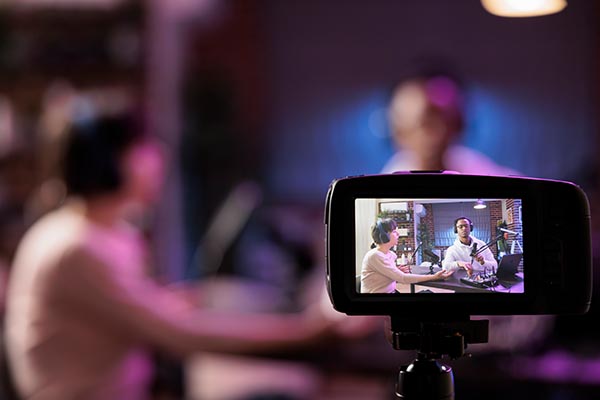
Community Building For Authors: The video is essential. Many people don’t take the time to read. Being able to see and hear you helps you connect with them on a deeper level.
Pre-Promotion Campaigns
I want to chime in on that. That’s what we do. I don’t think any book should be developed without having a book trailer, a little mini-doc, or something. We talk about Gen Z there. There are 40% less library checkouts with Gen Zs. Literally, almost practically half and people digest videos. That’s why we created the Author Experience app. It’s ready to launch. If you want to present through the PowerPoint, feel free. I know Juliet and I both, when we met, we said, “Start a pre-promotion campaign at least six months before the book comes out and while you’re writing the book.” That’s why I have people create a front cover right away when they know the title, trail, and such. Walk us through the process so that people understand what that’s like.
We can start at any point, but when I work with you guys and Juliet, we love to combine with the bestseller campaign. We can start as early as you want because we can be building that platform, building the community, and start getting people on your list, connected with what you’re doing and sometimes people will get three press releases. What’s awesome is that we’ll tell the story about the author, share some of their successes, and why they’re significant. We’ll use the second press release that we can put in three strategic links and even reference one that’s a pretty big media outlet. We start creating that story that gets them on that journey. It’s very simple, especially if you work with somebody like you as we fill out a form and answer a few questions, then we get on the phone and conduct an interview.
It’s not like a news interview. It’s more like, “Let me find those gems,” then we assess what is the conversion because you can go to AI and have it write a press release, but what makes this special is that we look at the overall strategy and the objective. Are you trying to be a speaker? Are you trying to sell people into your coaching program? What else beyond the books can we leverage and share in the press release in a newsworthy way that will get the eyeballs there?
From there, all the work is on us. We do the writing and unlimited revisions, send that back to you, and make sure that everything’s accurate then we syndicate it. What people love the most is that at the very end, they get a full report. It’s 58 pages with all of the links, logos, and everywhere that you’ve been. You can start using those logos on your website, branding, and speaker sheet everywhere. When people are doing that comparison of, “Who am I going to go to?” and they see that you’ve been featured in all of these places, they tend to be drawn more towards that.
Most of us have seen that with logos of the media companies and etc., if they’re doing speaking engagements of corporations and such. Regarding the logos from the media, what constitutes being able to use that logo? What kind of media pickup, any mention at all?
We do a story. It’s a story and you can go to their website and see what’s there. I have somebody who got mentioned in Forbes Magazine. She’s been featured in Forbes. It was a few sentences, a quote, and things like that. As long as you’re in there in a way that’s either a story, not an advertisement. If you’re running a flyer ad, that would be a little bit different. A mention constitutes being able to use a logo in my opinion.
Maybe if you can present.
I am focused on community building in this episode because that is one of my favorite topics. The way to navigate challenges in the community is the way to grow, the way to thrive, and like I shared with a client that Juliet and I had worked with. It was beautiful for her to be able to step into our community and say, “My books are on the market,” and then help in a short order of time. Having many people that have the same vision, mission, and vision of, “We want you to be successful. We want to help get you out to the world,” and reach that in a record time.
You did an intro of me. Why I am passionate about this is, there was a number of years ago when I started my business, I felt, alone. I felt like I didn’t know what to do or where to go. I had my area of expertise, but I was looking for more. You’ve heard the statement, “We are who we surround ourselves with.” I was like, “Who do I want to play with? Who are the most successful people and who are the areas of expertise that I can bring in?” I started building a community of other business owners that I knew could be catalysts for not only myself but also individuals that I came into contact with and in a short period of time we started the Business Acceleration Network and started fostering. We’re on a mission to reinvent entrepreneurship through community and collaboration. In this episode, I’m hoping to unleash that potential of community within you.
What Is Community
The first key question is, “What is community?” A lot of people are using this word. It’s a buzzword. I have to tell you, there are times when I get on and I’m like, “This is not a community. This is somebody who’s a leader and they’re talking at you.” I looked it up online and I was going, “It took up almost the whole webpage.” It’s a group of people living in the same place. This is the common direction and having a particular characteristic in common. What it is, is a feeling of fellowship with others. It’s not just a talking head. It’s not always a leader. It’s somebody where, where there’s engagement. They share common attitudes, interests, and goals. When I look at a community, it’s a place where every voice is heard, every voice matters and you’re able to access specific resources. Ideally, when we look at these resources, it could be brain tithing, talent, technology, or education.
A community is a place where every voice is heard, every voice matters, and you are able to access specific resources. Share on XYou’re talking about your app, and I don’t have all of the wherewithal of that, but that to me is something that’s a tool that you’re providing the community to be able to accomplish their goal. Can anybody relate to that? Where do you think you’re getting into community and then all of a sudden it’s like, no, this is not a community?
You see a lot of that on Facebook where somebody will say, “I want to be an influencer and I’ll start a community.” It ends up being all about them instead of a collaborative effort. I think most of us are probably engaged in that at some point or other, where we’ve gone to a community thinking we’re going to get help and they want to sell us something.
You bring up a great point. What is the aspect of community? Some people are looking as the author of, “I need to build a community.” I want you to know that that is an option, but there’s the option of joining a community. When you look at building your own community, it’s like another job or business. It’s something that you’re going to have to have moderators and you’re going to have to produce content. You’re going to have to do various things to support and build a community and then help them move into raving fans.
Often, you want to look at those factors of, “What do I want? What’s going to align with my lifestyle? What do I want to accomplish?” or is there a community that you can join? Juliet, I didn’t tell you this, but I’m going to use this as an example. Juliet was somebody who, when I talked to her, was she loves authors, loves community, wants to be a part of it, wants to support them, but with all of the technology and the ongoing management of it, she didn’t want to do it. I was like, “Why don’t we let you use our community?”
She has the author’s platform within our community. This is her stamp. This is where she’s providing value for our members. She doesn’t have to do all of the legwork. I know that each of us, as we look at communities, there are communities, chamber communities, and author communities. If you have a certain niche, I know James is here and he deals with wealth and healing, there are communities that you can participate in and let them do all the work, and you can reap some of the rewards. Did you want to add anything to that piece before I talk about building a community as an author?
Breaking Through Resistance
I understand about building an actual community in that respect. There’s another aspect of it, which is, let’s say for instance, many times, I’m working with an author and we create a book trailer. It’s 3 or 4 months or so before the book comes out. Where does the trailer lead to? It’s not leading to buy the book. It’s leading to something that they’re going to participate in. That requires their email address. What I’ve discovered, and I know for myself is we are much more resistant to give up our email address these days because we’re all overloaded with junk mail. I believe that whatever you’re offering that community is, you’re offering something of authentic value because you’re asking for something that some people feel, “I’m giving you my email address. There’s a lot of resistance.” In that level of community, where you list building, can you mention a little bit about how to break through the resistance in that respect?
The best way to get around that is to start building your LinkedIn because that’s where probably for most of you guys, your actual clientele is. I know a lot of people go over to Facebook, and that’s not the place. There is the LinkedIn Newsletter, and they will send out the invites to all of the people to join you and have it dropped into their inbox without the email. I have found that people like that because then it’s up to them whether they want to communicate with you, or how they want to play with you. We probably get 4 or 5 clients a year from people who are following that newsletter and passively doing it until they’re ready.
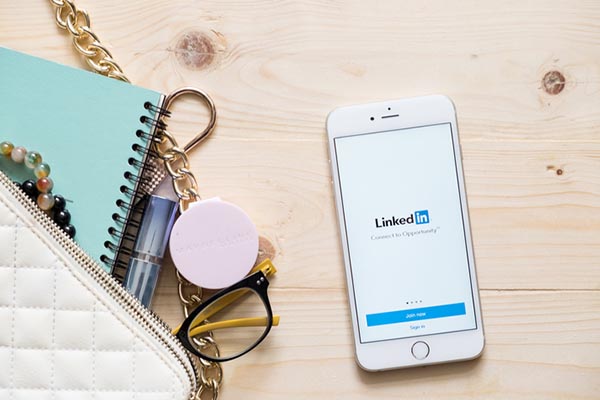
Community Building For Authors: Start building your LinkedIn, because that’s where your actual clientele is.
You had a lot of value. when you first showed me the LinkedIn newsletter, that was a game changer because then we dealt with the open rates, deliverable rates, and that piece. I know since I’ve done it, it’s been a big game changer because it goes in their email. The open rate has a greater impact. With that, when you’re looking at building a community, there are many ways of doing it. For me, I love events. Events are a great catalyst to get people involved and engaged. I use that as one of my ways of getting people into the community to come in, meet other people, see what we’re doing, and get a taste of what’s happening.
For you, it could be a video series, maybe there’s a training that you d. Maybe there’s some video sequence or if you’re not into video, maybe there’s a writing thing that you do that you deliver over time. When you’re having challenges converting with the emails, there are things that you can do on your website where people get to know you and then they are like, “I like this person. Now I will give them the email and move on.”
When you’re looking at building community, it starts with that platform. In The Business Acceleration Network, we have a pillar blueprint of what we work with that we take the businesses through.
One of the key things is communication. In the communication, you heard me mention a lot of times, that community is one too many. That’s not so much a community. We’re talking about having a place where they can ask you questions or where they can connect with other people who are there. You want to look at ideally, what is the community strategy that you’re going to use. I am not a big fan of Facebook communities. For me, we have our own exclusive platform.
I found that Facebook people come there and there’s a lot of noise. The notifications get lost depending on how many friends they have. You don’t have access to the email. I’ve even heard people where they lose their Facebook for whatever reason. I think looking at the platform that you’re going to do if it’s online is what is that technology and what’s the framework that you’re going to deliver? The other common piece is, is that people think the community might be e-learning. I’m giving them information.
That’s a great part of your community, but one of the great things about Jared is that you guys can come here and ask him questions. You can learn from each other. That’s when you start looking at, “How am I going to support my community? How are you going to allow them to engage? What is that communication style with that?” With ours, it’s much like Facebook where people can post questions. We have an ask and assist. People can do videos. People can put whatever they want in there. Not only can I answer, Juliet answer, or other experts that are there, but everybody can learn, grow, and connect. As an author, whatever your niche is, determine how you want to communicate in the community that you may build or even join. Anything you want to add here? I want to talk about leveraging technology and creating value for your community.
Platforms For Building A Community
There’s one question I have, and I’m sure other people are probably thinking the same thing. Beyond LinkedIn, which most of the people from our community of DreamSculpt have come through LinkedIn. I have 30,000 LinkedIn connections, and it is very sticky. People want to engage. I find the other platforms are more narcissistic, for lack of a better word, and sales-oriented. In general, on Facebook are family, friends, and those types of things. do you recommend what software or anything in that process of building community?
LinkedIn does have a business profile and much like Facebook, they also have groups. You can start your own group and your own community on LinkedIn, which can be great. I use a technology called Heartbeat because I’m able to stream my events through there. I’m able to do everything within the community. It allows people to be able to go inside of the community and it continues to drive them in there to see the other people. If you’re on LinkedIn and you’ve got a great following there, there is an option to be able to set up a LinkedIn group.
LinkedIn is the place to build a community.
I’m saying no because you’re under the control of somebody else. You don’t have the emails. You don’t have all of that control. Not that I’m a control freak, but I’ve seen people build huge communities and overnight they’ve lost everything and didn’t build the infrastructure to get them to their list and nurture them that way. I’m big on being sovereign, and having your own platform, and I’m happy to share the link of what we use that’s there.
The other piece that I love here is we can do the e-learning, groups, threads, and conversations, but we also are able to match people up and do events. Let me know, who does events?” Is there anybody here that does events is growing? Events are a great way to get people to like and know you. I do consider it as a media because you can reach and engage with people. It’s much easier to convert. Juliet, anything you want to add to that before I talk about leveraging technology?
Events are a great way to get people to like and know you. They are a medium you can use to reach and engage with people. Share on XYes, you have to be very careful on social media when you’re building a community there. You literally can lose it for several reasons. One of my very close power partners had a community over on a platform that’s no longer there. I don’t know if you guys remember MySpace. She had over 300,000 followers. She had a magazine. She never developed then never transitioned them to a list. She had sponsors. She was getting paid a pretty penny every month for a group that large that was engaged. Literally, when Facebook started, she lost her sponsors. She lost everybody to Facebook.
If she had just transitioned and had an opt-in that, everybody went into her list, she could have sent out an email blast that said, “We’re over on Facebook. Here’s the link. Here’s where we’re at.” She didn’t do it. She almost lost her business. She had to rebrand and go back. You have to be careful doing it on social media. I had a group on social media at one point. I got kicked off social media because they didn’t like something I said. Luckily my group was like friends so it didn’t impact my business. You never know. You’re at the mercy of these platforms and what they think on any particular day, especially the fact-checkers
Taking A LinkedIn Community To Your Email List
Let me share. That’s where I was heading towards what platform app software to convert people. If you’re building on the community on LinkedIn, and God forbid you get kicked off or whatever happens, you’re at their mercy. How do you take people from a LinkedIn community onto your email list? What do you use? What do you recommend?
I invite them to things to get into their funnel. Whatever it is that you have where you’re using LinkedIn or the LinkedIn community, do things that offer them to get involved. You want everybody on your email list, but getting them involved in your community. A lot of people are doing community as a membership, which is a revenue stream. Another thing that people are looking at is not just to build a community of raving fans and followers, but this becomes part of their income and revenue to continue to grow their business.
I did put the link in there to the community platform that I use. I did meet with the founder because I have also been a part of a lot of organizations where they close or things shift. I wanted to know, “What’s his long-term vision and why is he doing this? Who am I dealing with?” That’s important. One of the things that I loved is he ran the largest incubator in the United States out of Georgia Tech. He said there were many problems with Zoom, email, and trying to connect everybody. You have to send him the replays, the reminders, and all of that.
When he built this platform, he built it in the mind of having everything all in one place. It can integrate with Zoom and all of those, but you don’t have to do the reminders. There’s a lot there that you don’t have to do, but he also said he loves community. He has the intention of keeping it so that we have hundreds of thousands of communities globally. He thinks that community is the catalyst to make a change in the world and have a bigger impact.
If you want to build people and get into that funnel, do a training every month and start inviting people to it because it’ll start out slow. It always does, but as people start showing up for those training once a month, they get to know you. You’re building relationship capital. It’s not just a piece of content you put out there. People get to interact with you. I think we do it twice a month now. More and more people show up, but those are the people who hire you because now they know you. Everyone else is throwing content at them and you’re speaking to them. it’s something to think about when you’re putting together your platform.
The important thing when you’re also putting it together is my goal is not just to build community, but I want to create raving fans. Why are raving fans important? They are people who are going to talk about you, for you and the conversion is much better than you talking about yourself and you selling yourself. When you build this, it’s important to look at what’s the support system. What are the networking opportunities? There are things to bring people together. What are the resource sharing? If you have those three key elements, then those are things that you can look at to be able to foster your community and start creating raving fans because the one thing is it’s a lot easier if you have people talking about you within the community.
You want to look at engagement, how are you going to get people engaged and what’s that system so that they are engaging. When I met with the founder of the infrastructure, I built out, “I’m going to have all of these pieces.” He said, “It’s important in the beginning of building community to start small and make the number one goal of creating engagement because you could have 2000 people. It doesn’t matter the numbers that are there. It matters what’s happening within the community that gets people participating, contributing, wanting to come back and creating those genuine interactions where they have that opportunity to do that support and encouragement.”
You have to look at personal branding. You want to be consistent with your book if this is something that you’re doing and what your messaging is. Storytelling is important. For us, it’s that authenticity. It was funny. I remember doing this event one time. I hired a video team and I said, “Please come in. I want to get testimonials.” We had 50 people there. I was surprised because when I went through all of the videos afterward, I thought they’d say, “They get this discount. They get this benefit. They get all of these offerings that we have.” The common theme in every single video was, “We feel like we have a family and we feel like it’s a sense of community.” There was this place where they were missing that. We all have our families, but they wanted that authentic place where they felt safe, loved, and connected. I’m going to check in here. Anything else on this piece?
There’s so much to unpack and I imagine that there are quite a few people here that are probably eager to ask some specific questions. I think this would be a good time for that.
I’d love to hear what you guys are doing in the community. Are you in a community? Have you thought about building a community?
That does make a difference and asking questions but also sharing a little bit about your title and the community that you’re already associated with. If it’s a spiritual or religious community that you already have connections to or a part of, networking, or any of those things, then I think you’ll get a better response if you share a little more. Who’s ready to share?
I’m in the midst. I’ve been working with Jared. I’ve got an outline and I’m in the middle of writing it, and hopefully we’ll be done by the end of the year. I have a few questions. Question 1) You’re talking about the building of a community and my book’s in flight, for lack of better terms, not published. Do you recommend a community get started now?
Can you share your expertise?
In sincerity. It’s funny and Jared, I think you’ll have a chuckle on this. Everyone here is using the word authenticity, which is the word that I challenge in the book.
It’s way overused.
Where Does A Book Fit In
We go through the whole scenario around why sincerity might be a better option. 1) Start a community now. Some of that is, for example, I’m thinking about putting blog posts out there about the books. You start teasing a little bit of the topics that are going to be in the book. The second thing and this was the discussion we were having back and forth around LinkedIn. I have multiple businesses and multiple activities. A lot of times, all of those things seem to intercept at LinkedIn. I have a lot of people telling me, “Change your LinkedIn this way.” Sometimes, there are different ways of using LinkedIn. What I am doing is I’m an individual in LinkedIn and I’ve done things right, then I have a business and it’s the sales part of my thing. Where would a book fit? Is that another business page?
I have my opinion, but I know that’s Juliet and Jared’s area of expertise.
One thing I want to mention is that you asked, “When should I start building a community?” When Juliet and I first met, we both had the exact same belief that start building the community with your branded content, book cover, trailer, blog posts, engagement, digital quizzes, whatever it is, long before the book comes out because now you have a community that’s eager to buy a book when it comes out. Juliet, you have a better response there.
When you start writing that book, that’s when you get your opt-ins in place. You get your email server up and you start feeding content. Getting those social media posts out there 2 or 3 times a week, building your audience, getting that newsletter ready. If you wait until the very end, the book will fizzle because nobody knows you’re alive. It’s important to start getting all that out. The most important pieces of that are the landing page, opt-in, and also the content. If you’re not serving up great content, and it can be around the topic of your book. Don’t make it an excerpt. Your landing page should never be an excerpt. It should be something juicy that makes people want to get on your list and find out more.

Community Building For Authors: Your landing page should not be an excerpt. It should be something compelling that makes people want to subscribe to your email list and find out more.
I’ll give you an example. We have a book, we don’t even know when it’s coming out yet because the trial is still going on in Italy. We are starting to tell little bits of the story already for people who opt in. We’re making it a mystery. What happened here? Why are we on trial? we’re starting to spill out the story a little bit without ruining the book. You can do a lot of that, especially if you have tips. You can make a tip sheet or e a quiz. There are lots of ways to get people on your list. That’s where you should be going with it because you can offer your list. You need that list to launch. All of that is something that should be going the minute you think about writing that book, putting that, and starting to put that together.
As soon as you mentioned it, I got a sincerity challenge. I could see you creating a movement with this. I haven’t read your book, but it’s like you’re taking people on this journey and they get to do certain things and behave certain things. There;’s great contest stuff, but there’s a movement that you can create around this. It could be a great way for you to build community is through some sort of challenge.
It’s funny you mentioned the word movement. I recall that’s the exact word Jared used with me when we were chatting about putting that outline together. The message is loud and clear.
Avenues For Membership
Nancy had a question about memberships. Are there avenues for memberships?
Much like sponsorship membership is something that if you’re starting from the ground floor, it’s great to take an inventory of your assets. Assets are what is it that you can offer people. It can be things like members directories. It could be listed on my website, one-on-ones, or tickets to an event. There are lots of things that you may be doing or you may be able to offer in that. Once you get the list of assets that you could give somebody, then it’s important to do time, cost, and value. I always say, “Imagine you’re going to get 5,000 members. Can you do this? If you get 1,000 members, can you do this?”
It’s important to look a the time, cost, and value, and then you can start developing packages. They’ve done a study where anything below $50, people tend to say yes easily. They tend to continue paying. They may not be bothered by it as much, but people do $1,000 or $5,000 a month. I believe in having three different levels, but you could start with one. If you need to get with one, that’s great, but when you have three different options, the brain literally goes, “I’m going to choose one.” It’s fascinating. I hired a guy who helped Starbucks go from 200 stores to 2000 stores.
Our membership at the, at the time we only had two. He said, “You have to have three.” He explained what I’m telling you now. I went home immediately and I did an upper-level membership that was $300 more, and over 50% in revenue growth from having that third option. Those are some of the things that you look at. You start creating the package and keeping it simple and at the baseline of what’s the lifestyle you want. In our membership, we have one mastermind event for everybody.
All the levels come together to network, and we put people in a loveseat and things like that. We have another one where it’s the middle level where you get that and then you get an open office. You can come and ask questions. Here, they’re all getting e-learning. There are all kinds of things in the platform, but then the upper level, they’re paying for one-on-ones and things with some of the other experts. That list of assets can help you determine what to offer in your membership, but remember to base it on your lifestyle.
I want you to know that we’re all in a community all the time. If you’re in a church, that’s a community. If you have a family, family reunion, we’re in a community. Fostering those relationships is where it’s at. You may not be building your own community, but you can get involved in other communities and find that community. Meetup is a great place to look for things that might be in your niche. Personally, this may not be for everybody, but I love that human touch. I am active in my community and my area because it’s easy to get free press and have those raving fans. We’re all in a community and everybody is for the most part. You’re here in a community.
We're in a community all the time. Churches, families, and even family reunions are all examples of communities. Fostering those relationships is where the importance lies. You may not be building your own community, but you can always get involved in… Share on X
Getting On Podcasts
One of the other questions I think that some people have is knowing that the viability of being on a podcast is a lot easier than getting into national media. Some podcasts have bigger audiences. Joe Rogan has a bigger audience in the view, things have to transform. Those kinds of higher-level podcasts usually represent agents getting on and such, but there are a gazillion podcasts that people are looking for guests. Juliet, you can chime in on this as well. Would you recommend getting on podcasts well before the book comes out? What’s the easiest way to access lists of podcasts that would be relative to your content?
I think that you want to position yourself as an expert and any media is essential. Go tomorrow and see where you can book on podcasts. I’m a big advocate of being out there and getting in the media. I know Juliette has a link to software that can help you get booked. I’ve also used a radio guest list where you can get free lists.
That would be helpful. Juliet share what you used because I think this is what a lot of people are questioning, how to get booked, and do you have to send a hard copy of the book? I know when I was traditionally published with a publicist, they sent out hundreds of books because television and radio wanted a hard copy of the book, and probably for the bigger podcast as well. If you don’t have a book and yet you want to be that guest that mentions the book or gives some extrapolation from it, how do you recommend getting started? Juliet, maybe share the software to the platform that you use so we can have access.
I’m going to be transparent. As a podcast host, I don’t take walk-ons. I cultivate my own and almost everybody, all the podcasters I know have bigger shows because we get a lot of downloads every month, and we cultivate our own guests. The chances of you getting on are not high. What I do with my clients and we have someone right now whose book is not even written and we’re sending a map.
We get together your speaker sheet, we get together a little bit later, your book one sheet, and we decide on your messaging and we send you out on a tour to talk about your expertise and drive people to a landing page to get on a list to be notified when the book comes out. The advantages of that, are you have the landing page, you’re collecting the audience, you’re feeding them great content at least once a week through that list and keeping them engaged in that book coming out and then go on another tour after you get it done once your book comes out.
The reason we started doing that is we now use the former Simon & Schuster publicity team. We do it because they have the contacts. They read your book, which most of these podcast booking companies don’t. They get you on anybody they know. The ex Simon & Schuster guys read your book and then they reach out to properly aligned audiences. What’s important here is someone like Tom with sincerity, you don’t want to go over on a tour with someone who does something that’s not related to personal development, sincerity, or whatever that topic is.
I can’t even tell you how many groups that are $5,000 and you don’t get anything out of it. Where I would start, is getting yourself ready and set up to not only build the audience but also get yourself out on a tour and talk about what you do and drive traffic to your upcoming book because there’s no reason why you have to wait to start marketing until your book is out. If you do, chances are the book is not going to do that well. If you start early and start doing these things, you’ll gather that audience and those people who are interested along the way.
There is no reason why you have to wait to start marketing until your book is out. If you do, chances are the book is not going to do that well. By starting early with specific marketing strategies, you'll attract an audience and build interest in your… Share on XI want to mention one thing because maybe things have changed. It was 2015 the last book I did, which was more of a memoir and I didn’t have a lot of excitement about talking about myself, but there are many people that are doing podcasts. I was on some podcasts and maybe had 20 or 30, listeners. What I recommend for people to get on those ones is because then you can clip when you had a great moment and create a little sizzle reel to cherry-pick what you think is your excellence and presentation. It seems like there are enough podcasts with that looking for guests.
Juliet has been doing hers for years and she’s got thousands and thousands of people there there. You can still get booked.
It’s going to be harder because you have to remember those people that are doing their own management with that, there are PR agents that send me clips every single day. I go in and delete it because it’s obvious they haven’t listened to the show, which we’re very proprietary about our shows. It’s obvious they haven’t listened and someone, the PR agent is out there pitching blindly, sending out a bunch.
I literally will take a cursory look. Once out of all the pitches I’ve gotten, “Have I taken somebody with it?” There’s a new product out called PitchDB that has a lot of shows, conferences, magazines, print media, and TV. Depending on the package you choose, you can choose and then have it write an AI pitch for you even when I use that, I go in and finesse the AI pitch to make it a little bit more personal.
I know that you have a few more details before we conclude.
If you get on a podcast, you want to stand out above all the rest and get booked, take an interest in the host. Before I get started on any interview I say, “Please tell me a little bit about you. I saw this.” On the show, try to edify them. Try to say something about them, because many people show up on shows and they make it all about them. The hosts rarely get people that will take the time to say, like I did with Jared, “Jared, you’re building a community.” You guys got to see me do this. I will not go on any show without driving people to who the host is. When you do that and you co-market, you will get referrals and you will get booked over and over again.
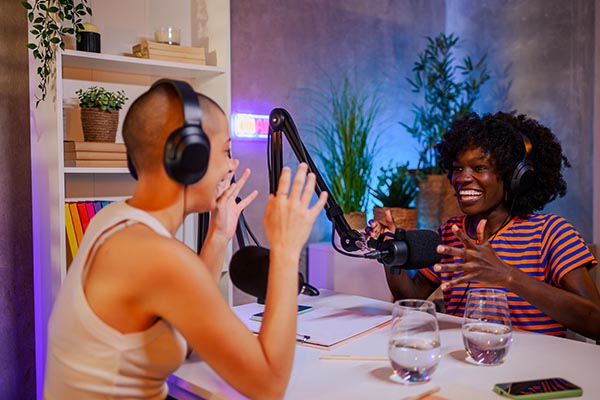
Community Building For Authors: If you want to stand out and secure repeat bookings on podcasts, take an interest in the host. Always promote the host and co-market with them. This will increase your chances of getting referrals and securing future bookings.
Always ask the host for permission because it’s their IP, Intellectual Property. Always ask their permission to be able to run clips on their show because you don’t want to offend them either. I always say yes because I’m happy for any promotion, but some people wouldn’t be.
Shannon, share what you’re offering here because I know it’s very valuable.
If you go to PowerPartnerMastery.com, you can scroll down and see the first training that Juliet and I did.
If you don’t know this about her, she is a master at leveraging relationship capital and building those power partnerships. This is part two. You get a workbook. it’s a two-hour workshop where we’re going to help you identify those relationships and look at how you not only get ready but build those relationships and leverage that to grow your business. Juliet, do you want to add anything to this? This was cool for me to come together with a Power Partner. You’ve read us talk about that and create something together now what’s been beautiful is we’re both reaching new people and growing our list. There are a lot of beautiful ripple effect that happens from creating relationships with others to growing your community.
One of the benefits of the Power Partner training is you can leverage those power partners on your launch because then it’s not only you sending out information, it’s those partners that support you, that are sending out the emails, sending out the bestseller campaign materials so that they’re driving their audience to you as well for the book launch. That’s why it’s important to get those traffic drives to perfect them because that’s all a launch is, is a traffic drive. If you don’t know how to drive traffic going into it, you’re going to have quite a time getting people to buy the book.
the other thing that I wanted to say is we are doing the AI Author Academy. It is a fantastic class. I teach you guys what’s called Prompt Engineering, which you’re going to hear a lot over the next few years. Gary Vaynerchuk did an interview and he was talking about it already as well. with AI coming, we have a process where we can streamline and teach you how to use different AI platforms for different things in your book. We literally in the last class created quizzes and courses. We did all sorts of things with different platforms within minutes. It’s the same with content where the prompt engineering comes in is you have AI as garbage in, garbage out system. Once you understand how to prompt, how to prompt the avatar and the language, you will rock this.
Literally, I write content pieces in minutes with some of the things that I use. It is a way to start streamlining. I know a lot of you guys are solopreneurs. That’s meaningful when you can do something in minutes versus taking five hours a week to get a blog out or to get social media posts out. You guys can sign up for that at AIAuthorAcademy.com. It is four one-hour group sessions, and then I break off with you every single week, of the four weeks in a one-on-one where we just work on your stuff so you understand what you do too.
I always appreciate Juliet and Shannon having you on with the Masterminds. You’re on top of things and it’s important because the learning curve is a big one and having this support makes a difference. To conclude this, it is about building a community. It’s not about selling a book because if you think it is the old school, you publish a book and then you put an advertisement, good luck. Building a community and out of your passion. I know everyone that’s on this, the reason why you’re writing the book is you have a passion to share with people to help them grow. Thanks to the both of you. If you have any questions about either of them, send them to me and I’ll put you in touch with Shannon and Juliet. I know Juliet is part of our team here in the DreamSculpt family. Onto the next step on the journey.
Thank you.
Be well all.
Important Links
- DreamSculpt
- Shannon Procise
- Business Acceleration Network
- PitchDB
- Power Partner Mastery
- AI Author Academy
About Shannon Procise
 Shannon Procise has successfully attained over $3.2M in FREE publicity and is notorious for being the owner of the “Million Dollar Rolodex” and teaching others how to do the same. She has trained and coached thousands of individuals in marketing, event production, business development, and personal growth. Shannon is the creator of a magnetic community – the Business Acceleration Network, where she guides businesses to build a successful enterprise while having fun and making lots of money.
Shannon Procise has successfully attained over $3.2M in FREE publicity and is notorious for being the owner of the “Million Dollar Rolodex” and teaching others how to do the same. She has trained and coached thousands of individuals in marketing, event production, business development, and personal growth. Shannon is the creator of a magnetic community – the Business Acceleration Network, where she guides businesses to build a successful enterprise while having fun and making lots of money.
About Jared Rosen
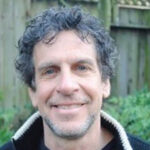 Jared Rosen is the founder Of DreamSculpt. As an innovator in digital media publishing, he has published over 50 media enhanced e-books for many best-selling authors and filmmakers and has published dozens of books in print. Jared is the author of three books including the groundbreaking book The Flip. As a thought leader he has presented in venues ranging from TED X Malibu, to McKinsey and Company, Sydney, Australia. In 2000, Jared co-created the Children’s Emotional Literacy Project endorsed by Mayor Richard Riordan and Norman Lear.
Jared Rosen is the founder Of DreamSculpt. As an innovator in digital media publishing, he has published over 50 media enhanced e-books for many best-selling authors and filmmakers and has published dozens of books in print. Jared is the author of three books including the groundbreaking book The Flip. As a thought leader he has presented in venues ranging from TED X Malibu, to McKinsey and Company, Sydney, Australia. In 2000, Jared co-created the Children’s Emotional Literacy Project endorsed by Mayor Richard Riordan and Norman Lear.
Love the show? Subscribe, rate, review, and share!
- superbrandpublishing.com
- Promote, Profit, Publish on YouTube
- Follow Juliet on LinkedIn
- Take the Quiz!



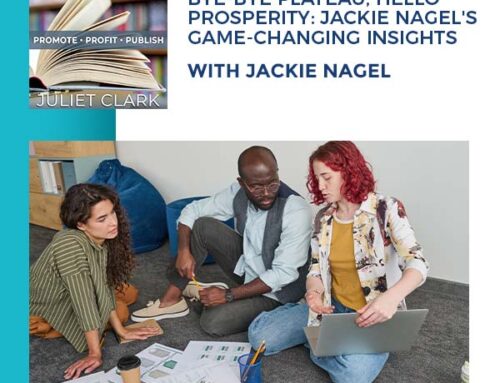
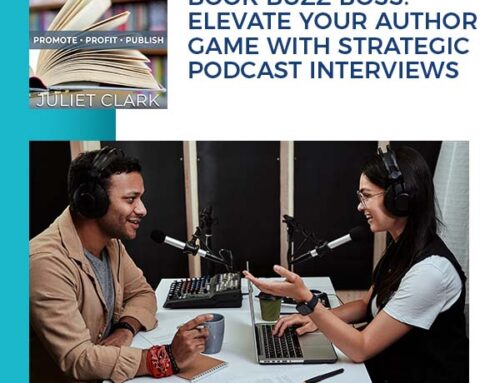
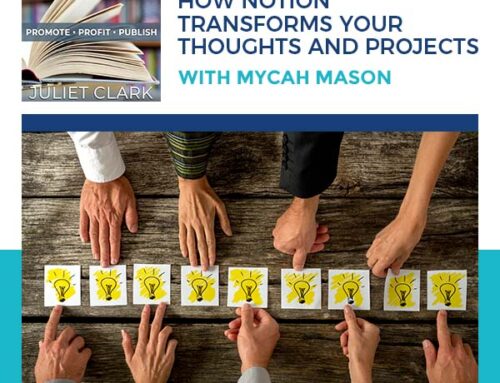
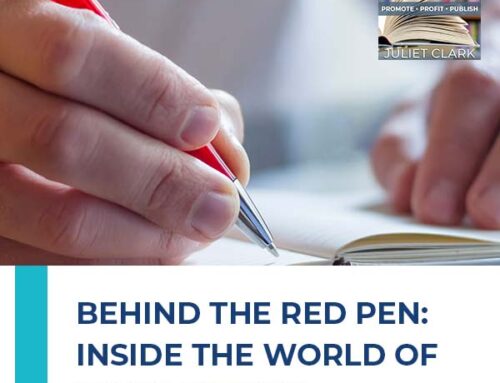


Leave A Comment